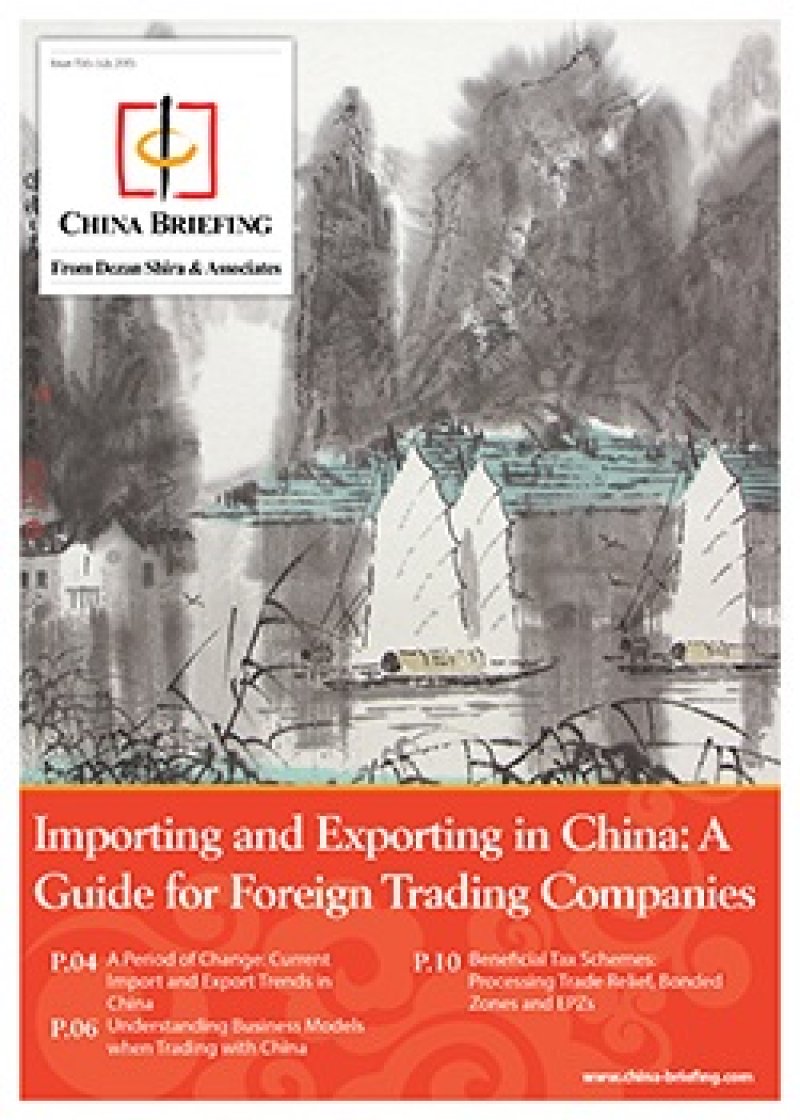China Regulatory Brief: Paternity Leave in Beijing, Import Tariffs on New Zealand Dairy Products
Beijing to Grant Male Employees a 15-day Paternity Leave
Recently, the Legal Affairs Office of Beijing issued the “Amendment to the Regulations of Beijing on Population & Family Planning (Draft Version)” to solicit public opinions before January 28, 2016.
According to the Draft, Beijing will lift the restrictions concerning giving birth to a second child and remove the 30-day late childbirth maternity leave in compliance with the country’s new two-child policy. Meanwhile, the Beijing government will entitle an additional 30-day maternity leave to mothers as an incentive, whilst paternity leave will stand at 15 days. Currently, if the mother is under 28, she must have at least a four-year interval between her first and second child. There is no specific paternity leave policy in place in Beijing at the moment. However, the additional late childbirth incentive leave of 30 days awarded to mothers can also extend to fathers.
China Raises Import Tariffs on New Zealand Dairy Products
On January 14, China Customs announced that the country would take “special safeguard measures” against certain imported dairy products from New Zealand starting January 11. Specifically, China increased the import duties on butter (HS code: 04051000, 04059000) and cheese (HS code: 04061000, 04063000 and 04069000). Under the terms of New Zealand and China Free Trade Agreement (FTA), the import tariffs for cheese and curd, as well as butter and other fats originating from New Zealand are 1.2 percent and one percent, respectively.
Based on the FTA signed in 2008, China will phase out all tariffs on most products originating from New Zealand progressively by 2019. However, the FTA also includes a special safeguard mechanism for 12 dairy products which China considers to be sensitive. The special safeguard is a temporary mechanism, available for China during the phase out period and for an additional five years once tariffs have been eliminated. The safeguard allows the Chinese government to restore tariffs on New Zealand dairy imports to pre-agreement levels where those imports exceed a trigger level agreed by both sides during the negotiations.
![]() RELATED: Business Advisory Services from Dezan Shira & Associates
RELATED: Business Advisory Services from Dezan Shira & Associates
Foreign Donations to be Exempt from Import Duties
China’s State Council has recently announced its decision to exempt imported donated goods for charitable purposes from import tariffs and import value-added tax (VAT) beginning April 1, 2016. These donated goods include:
- Clothing, shoes, tents, blankets and other basic necessities;
- Food and water (excluding tobacco, alcohol, seasoning, seafood, fruit and beverage);
- Medical devices, medicine and medical books;
- Educational instruments & equipment, as well as books used in libraries and schools;
- Environmental protection equipment and product; and
- Other goods approved by the State Council.
Guangdong Further Simplifies Visa Procedures for Foreign Experts
On January 8, the Guangdong Foreign Experts Affairs Bureau, together with other four departments concerned, released the “Circular on Further Simplifying Short-term Visa Procedures for Foreign Experts (Waizhuanfa [2015] No.176).” The circular stated that starting November 1, 2015, eligible foreign experts will no longer need to obtain a work permit. Meanwhile, foreigners holding the “Invitation Letter for Foreign Experts” who need to stay in China for less than 90 days for non-commercial purposes but haven’t obtained the visa overseas may go to Guangdong Port Visa Management Department to apply for an F visa to enter the country.
|
Asia Briefing Ltd. is a subsidiary of Dezan Shira & Associates. Dezan Shira is a specialist foreign direct investment practice, providing corporate establishment, business advisory, tax advisory and compliance, accounting, payroll, due diligence and financial review services to multinationals investing in China, Hong Kong, India, Vietnam, Singapore and the rest of ASEAN. For further information, please email china@dezshira.com or visit www.dezshira.com. Stay up to date with the latest business and investment trends in Asia by subscribing to our complimentary update service featuring news, commentary and regulatory insight. |
![]()
Importing and Exporting in China: a Guide for Trading Companies
In this issue of China Briefing, we discuss the latest import and export trends in China, and analyze the ways in which a foreign company in China can properly prepare for the import/export process. With import taxes and duties adding a significant cost burden, we explain how this system works in China, and highlight some of the tax incentives that the Chinese government has put in place to help stimulate trade.
 Employing Foreign Nationals in China
Employing Foreign Nationals in China
In this issue of China Briefing, we have set out to produce a guide to employing foreign nationals in China, from the initial step of applying for work visas, to more advanced subjects such as determining IIT liability and optimizing employee income packages for tax efficiency. Lastly, recognizing that few foreigners immigrate to China on a permanent basis, we provide an overview of methods for remitting RMB abroad.
 Human Resources and Payroll in China 2015
Human Resources and Payroll in China 2015
This edition of Human Resources and Payroll in China, updated for 2015, provides a firm understanding of China’s laws and regulations related to human resources and payroll management – essential information for foreign investors looking to establish or already running a foreign-invested entity in China, local managers, and HR professionals needing to explain complex points of China’s labor policies.
- Previous Article Strategic Considerations when Establishing a WFOE in China, Part 1: Business Scope and Registered Capital
- Next Article China veröffentlicht den neuen Entwurf über die Regelung der Verrechnungspreisdokumentation











